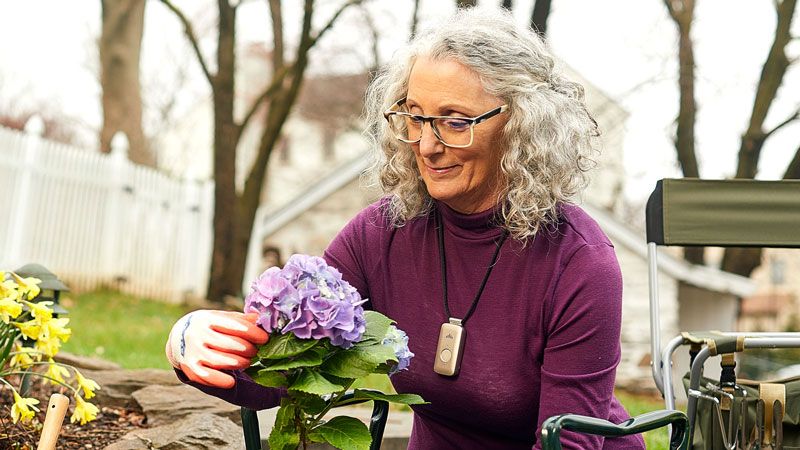Gardening is a great way to get outside, enjoy nature, and create beauty around you. It’s a fun, relaxing activity for older people and offers benefits for your physical, mental, and emotional health. Let’s look at some of them and discuss ways to make gardening easier if you have mobility or strength issues.
Health benefits of gardening for Seniors
Research studies show that among outside activities for seniors, gardening provides a wide range of health benefits. Working in the garden can help you by:
- Improving your range of motion, strength, flexibility, and mobility
- Providing a regular opportunity for physical activity
- Encouraging a positive mood and sense of well-being
- Enhancing creativity and brain function through planning, decision-making, and learning about new plants
- Strengthening social bonds if you garden with family members or a community group
- Providing fresh, nutritious food if you grow fruits and vegetables
Gardening has also been shown to lower the risk of several chronic diseases such as heart disease, depression, type 2 diabetes, and osteoporosis.
A study from Texas A&M University even shows that simply spending time in a garden, whether you’re tending to plants or not, allows you to reap many of the above benefits. And gardening can be a low-cost activity that doesn’t require much space, making it accessible for just about everyone.
Before heading outside, read on to see what precautions you can take to make sure your gardening time is safe, fun, and productive.
How to make gardening tasks easier
Kneeling, bending, stooping, reaching, and lifting are just a few of the motions that gardeners engage in constantly. No wonder gardening is considered great exercise!
But as you age, it can be a bit harder to complete all the physical tasks of gardening. In addition to enlisting help from someone else when you need it, there are creative ways to make your gardening tasks easier and more enjoyable. Here are some ideas to get you started:
- Use rolling carts to move heavy or bulky plants and supplies.
- Bring a rolling seat, padded kneeling bench, or knee pads to make getting down on the ground easier.
- Use ergonomic hand tools that are made for arthritic joints.
- Choose lightweight garden tools that are easier on your muscles and joints.
- Add foam tape or rubber grips to handles.
- Time your garden work wisely: work early or late in the day, weed after a rain when the ground is soft, and avoid working outside when it’s above 80 degrees.
Safety tips for Senior Gardeners
In addition to the above ideas for lessening your gardening load, keep the following safety tips to help prevent injuries, overheating, and dehydration.
- Take breaks inside or in the shade often, at least every 30 minutes.
- Garden with a friend or loved one, when possible, for added safety.
- Always have water with you and take a drink every 15 to 20 minutes.
- Wear a hat and sunscreen to protect against sunburn.
- Wear gloves to protect your hands and boots or other sturdy shoes for your feet.
- Don’t wear earbuds while gardening, as they can make you less aware of your surroundings.
- Set tools down safely: always place rakes and shovels with points facing down.
- Enlist help if you need to dig up or move a heavy plant.
- Use vertical elements (such as trellises and walls) for vining plants to reduce the need to bend and stoop.
- Build or buy raised beds to allow you to garden at a more accessible height.
While you’re in the garden, it’s wise to wear your on-the-go medical alert device in case of an emergency. While some people think a cell phone is all they need for emergencies, you may not be able to reach your cell phone or dial 911 if you have an accident. A medical alert device worn on your body ensures that help is right there when you need it, at the push of a button.
You can use some of these tips to make your next day in the garden safe and enjoyable. Check out Medical Guardian’s upcoming blog posts for more fun summer ideas.

